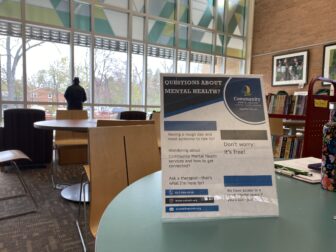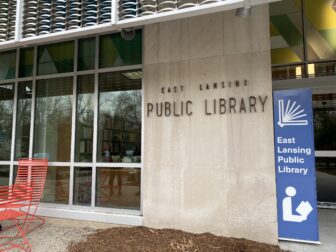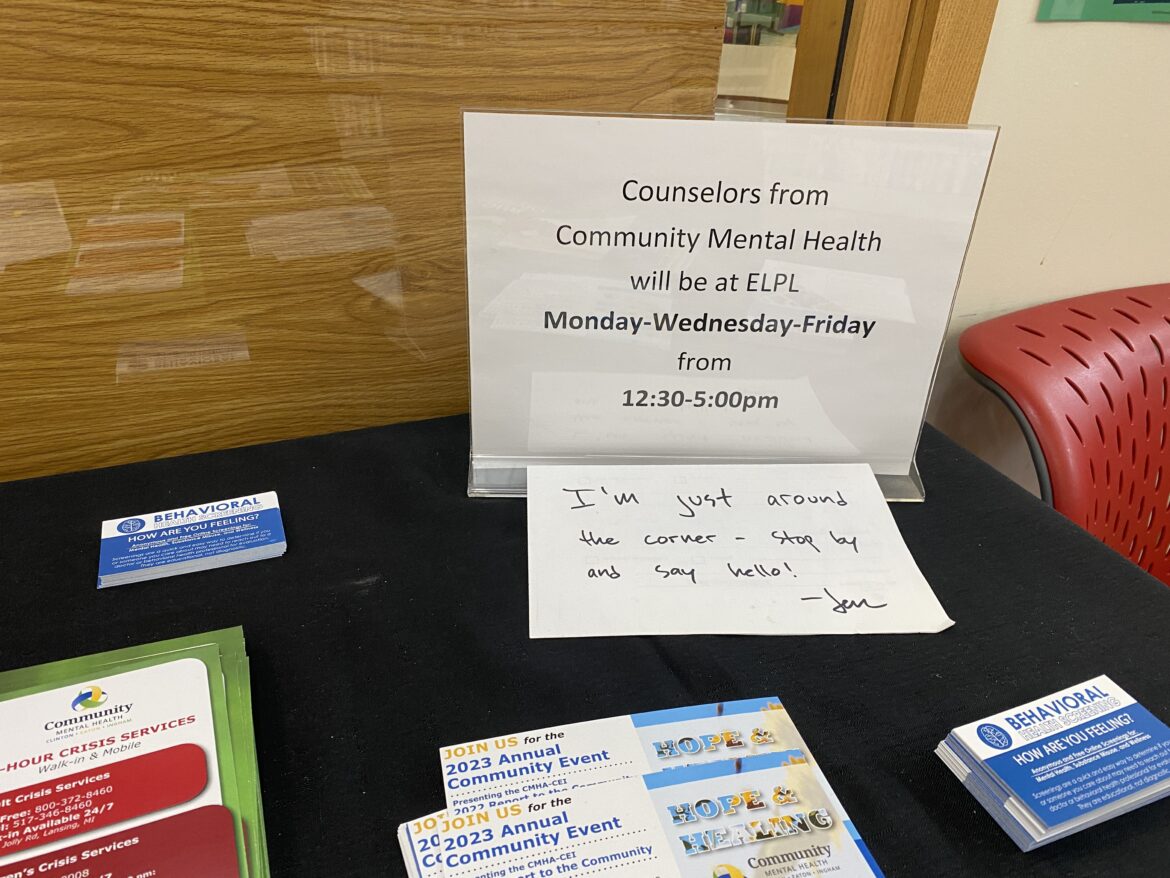EAST LANSING, Mich.—Since February, counselors from the Community Mental Health Authority (CMH) of Clinton, Eaton and Ingham counties have been offering crisis support at the East Lansing Public Library (ELPL).
Community members who need support following the Feb. 13 violence at Michigan State University can stop by the library Monday–Friday from 12:30–5 p.m. for free counseling, with no appointment required.
CMH was contracted by the Michigan Department of Health and Human Services to connect with the East Lansing community around some of the needs the library brought up.
Shana Badgley, the program director of adult mental health services at CMH found providing counseling at the library is helping redefine how residents look at mental health.
“We really want to make mental health treatment more accessible. That’s the whole point of the library,” Badgley said.
CMH had staff provide information during open library hours to help get past some of the barriers that people might experience as they seek mental health treatment.
Jennifer Cronkite, a prevention therapist with the Families Forward program at CMH noticed that most people she spoke to stumbled upon the table interested in having a quick conversation about what they experienced.
“Even a brief session is fine if people get the idea that therapy is in the community, and it’s accessible. If people can just walk up and ask people some questions about mental health, then that’s a good way to spend time, and that’s a valuable use of our staff,” Cronkite said.
CMH relied on counselors trained in critical incident stress management, behavioral health staff members and their community youth outreach unit.

Sabrina Seldon
Badgley found people were really appreciative of CMH’s services as it was helpful for their counselors to be present.
“It amazed me how much trauma, and even gun violence specifically, that people have encountered in their lives whether they were directly involved or not,” Badgley said. “You don’t have to sweep it under the rug. You don’t have to let it go and not come back around and deal with that trauma. It’s okay to talk about it.”
Offering counseling at the library has led CMH employees to reconsider where they are offering their services.
“If people don’t know where we are, or if transportation or time might be a barrier we should spend more time in places where people are. We have talked about what other spaces are because this library has been incredibly welcoming and we really enjoyed being hosted by them,” Cronkite said.
Sara Lurie, the chief executive officer at CMH, found the environment of the library played a role in their services. People may feel more comfortable coming to the library for counseling versus going to an office.
“Many people are already comfortable entering the library,” Lurie said. “It has a lot of nice quiet spaces. It made us think about what a great partnership it could be to have behavioral health in a library setting. We did this as a response to the tragedy but it really has made us think about what other settings that we can integrate our care to.”
Kristin Shelley, the director of ELPL has found CMH’s services beneficial to the community and has enjoyed having them in the library space.
“It’s been very good to have counselors for the general public and for our community members. I’m more than willing to open up the library for those things,” Shelley said.

Sabrina Seldon
Counselors are available for one-on-one conversations in public or in a more private setting within the library.
“We’re right at the front entrance,” Badgley said. “We have somebody sitting at the table with resources. There’s a private room in the back of the library that we’ve been using. Somebody comes in here and talks to someone and we just take them back. Services average for 30 to 50 minutes.”
Following the service CMH counselors are available if community members want to have another conversation. They also can write referrals and help connect people with other services.
CMH is now a certified community behavioral health clinic, which is part of a federal model of behavioral health that is championed by Senator Debbie Stabenow. This allows CMH to take in a wider range of people and be better equipped to take people who are commercially insured.
“As a public behavioral health provider, we have always provided care to individuals with serious to severe behavioral health conditions,” Lurie said. “But being a secure agency has allowed us to expand our crisis services. It’s allowed us to open our doors wider to serve the more mild and moderate population. We’ve just been able to serve more people in different ways than we could before.”
Cronkite wants people who may be hesitant about using counseling services to know how they are feeling is normal.
“You as a human are not what’s abnormal here, the situation you lived through is what is abnormal so these reactions are all very typical and there’s lots of resources out there if you’re still feeling like this in the days, weeks or months to come,” Cronkite said. “There are people out here whose whole job it is to help you work through your experience and that’s ok to ask for.”
CMH is considering continuing its collaboration with the library after seeing the community’s reaction to its services.
“My hope is for the beginning of the fall semester that we would have counselors available,” Shelley said. “I mean there is no easy fix for this and it’s gonna take years for our community to heal.”
